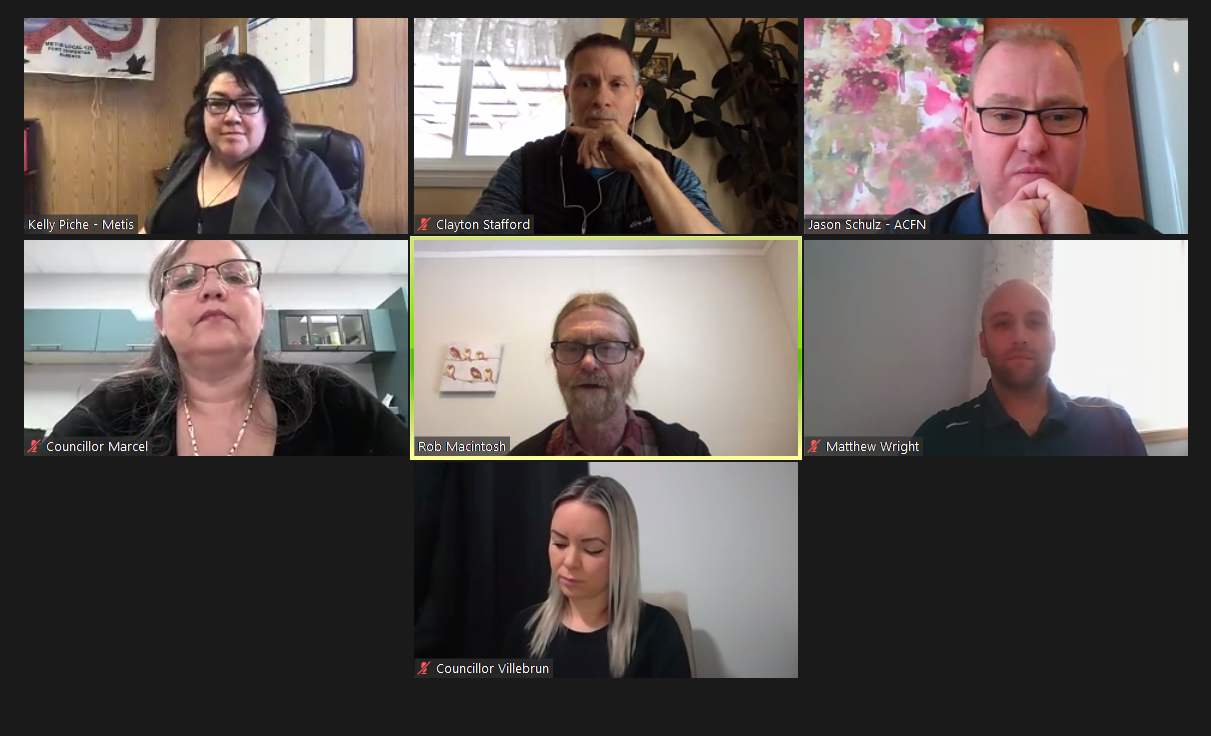Three Nations Energy (3NE) and Greenplanet Energy Analytics cut the ribbon to Fort Chipewyan’s community solar farm.
Athabasca Chipewyan First Nation (ACFN), Mikisew Cree First Nation (MCFN), and Fort Chipewyan Métis Association are joint owners of 3NE.
Formed in 2018, 3NE collaborated with ATCO on this project and received funding and support from the governments of Canada and Alberta.
Community leaders gathered safely at a solar farm on Nov. 17, 2020.
Kelly Piche with the Métis Association said by educating the youth, they will become responsible stewards of the land.
ACFN Councillor Terri Villebrun said the community is really proud to have such a project, and engaging with the youth is key.
Construction on the solar farm began in 2017.
Project timeline
With a smaller solar farm built by ATCO in 2019, the completed project will supply the 1200 residents of Fort Chipewyan with 25 per cent of its annual electricity needs.
The output will displace 25 large tanker trucks and over 800,000 litres of diesel fuel per year.
It will also reduce 2376 tonnes of carbon dioxide equivalence of greenhouse gas emissions every year.
Diesel truck transport would travel the RMWB Winter Road and its ice bridges, or in barges from Fort Smith, N.W.T.
The ATCO Third Lake Generating Station formerly produced the majority of Fort Chipewyan’s energy.
When about converting the engines to natural gas, Matthew Wright with ATCO said the company would examine that possibility.
3NE said Indigenous Green Energy will promote self-reliance and energy independence, reduce economic leakage, and develop skills and participate fully in future industry.
In January 2020, crews harvested trees on the site salvaging 290 cubic metres for firewood and other green initiatives.
Residents can sell firewood to Fort Chipewyan homes below market price.
Trucks of 45,000 kilograms and more began transporting racks and piles for construction in February, which included installing 5760 solar panels.
3NE released a series of videos explaining how solar energy will help to power the community.
They connected 15000 metres of cabling and 15 string inverters in two buildings.
The ceremony heard remarks from federal Natural Resources Minister Seamus O’Regan, provincial Indigenous Relations Minister Rick Wilson, and ATCO CEO Nancy Southern.
O’Regan said economic development is done the right way through partnership and reconciliation.
“You guys think big, and that is what we need right now. We need you, we need your drive, tenacity, to innovate, create new opportunities, [and] to excel like you’ve done here. We can’t afford to leave our best talent on the sidelines; when we include everyone, we get the best.”
He added the country welcomes Fort Chipewyan’s determination to decrease reliance on diesel, pollution, and address the climate crisis in the region.
“You’ve established Canada’s largest off-the-grid solar project in our province’s remote northeast,” Said Rick Wilson. “Alberta’s government values projects that lead to shared prosperity through responsible resource development.”
3NE also approved moving forward a sustainable food production centre, which will train residents on hydroponics.
Revenue from the solar farm would contribute to community education.
Blue Eyes Simpson of the Métis Association said working together really pays off.
3NE produced a series of informational and technical videos, which residents may view on the company’s website.







